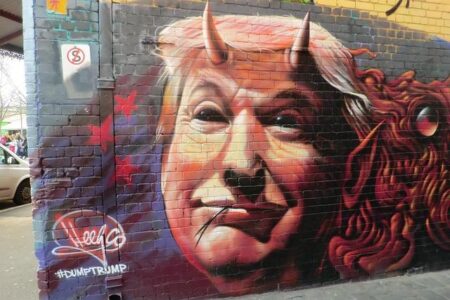In a recent article for the Toronto Sun, columnist Brian Lilley takes aim at Canada’s left-wing political factions, accusing them of undermining the fundamental right to free speech. Highlighting a series of contentious incidents and policy debates, Lilley argues that progressive groups are increasingly intolerant of dissenting viewpoints, fostering an environment where open dialogue is stifled. This critique adds fuel to the ongoing national conversation about the balance between protecting free expression and addressing hate speech in Canada’s evolving political landscape.
Canada’s Left Faces Criticism for Challenging Free Speech Norms
Recent debates in Canada have highlighted a growing tension between progressive activists and traditional free speech advocates. Critics argue that certain factions on the left are increasingly promoting restrictions that undermine the foundational right to express diverse opinions, even those that are controversial or unpopular. This shift is seen not just as a cultural trend but as a political strategy that risks alienating broader segments of society. The concern is that silencing dissenting voices under the guise of protecting vulnerable groups ultimately chips away at democratic discourse.
Observations indicate several key areas where this conflict plays out:
- University campuses tightening speech policies to shield students from offensive ideas.
- Social media platforms pressured to enforce stricter content moderation aligned with left-leaning values.
- Public debates and forums where speakers with dissenting views face cancellations or hostile crowds.
| Area | Left’s Approach | Free Speech Advocates’ Concern |
|---|---|---|
| Education | Safe spaces, trigger warnings | Limits rigorous debate |
| Digital Media | Content moderation, bans | Risk of censorship |
| Public Events | Speaker disinvites | Suppression of viewpoints |
Examining the Impact of Speech Restrictions on Public Discourse
Restrictions on speech have increasingly become a flashpoint in Canadian society, particularly as the political left advocates for limiting certain opinions deemed “offensive” or “harmful.” These constraints, often justified as necessary for protecting vulnerable communities, instead risk stifling robust public debate and undermining democratic values. When voices are censored or discredited simply because they challenge prevailing orthodoxies, the ability of citizens to engage critically with important issues deteriorates, leading to a fragmented and polarized public sphere.
Key consequences of imposing speech restrictions include:
- Chilling Effect: Individuals self-censor out of fear of reprisal or social ostracization.
- Echo Chambers: Communities become insulated from dissenting views, reducing empathy and understanding.
- Reduced Accountability: Public officials and institutions face less scrutiny when criticism is muted.
| Impact Area | Result |
|---|---|
| Media Freedom | Press faces greater pressure and editorial constraints |
| Academic Environment | Scholarly debate is hindered, affecting innovation |
| Cultural Dialogue | Reduced diversity of perspectives in arts and culture |
Encouraging Open Dialogue While Balancing Respect and Responsibility
Open dialogue is undeniably the cornerstone of a democratic society, fostering an environment where diverse perspectives can be exchanged freely. However, recent trends among Canada’s left-wing factions suggest a shift towards limiting conversations that challenge prevailing ideologies. This tightening of discourse, often justified as protecting marginalized groups, risks creating echo chambers that stifle debate rather than encourage meaningful engagement.
Balancing respect for individuals with the responsibility to uphold free expression requires a nuanced approach. Encouraging dialogue means accepting uncomfortable ideas while maintaining civility. Key elements to achieve this balance include:
- Promoting active listening without immediate judgment
- Distinguishing between hate speech and dissenting opinions
- Encouraging participants to respond thoughtfully, not react impulsively
- Ensuring platforms remain open to a variety of voices, regardless of ideology
| Principle | Role in Dialogue |
|---|---|
| Free Speech | Allows expression without fear of censorship |
| Respect | Maintains civility among differing views |
| Responsibility | Protects against harm caused by hate or misinformation |
To Wrap It Up
In sum, the recent actions and rhetoric from Canada’s left, as highlighted by LILLEY, raise significant questions about their commitment to upholding free speech. As the debate over the boundaries of expression continues to intensify across the nation, it remains crucial for all political factions to engage in open dialogue and respect diverse viewpoints. The future health of Canada’s democratic discourse depends on a balanced approach that protects freedom of speech while addressing concerns over hate and misinformation.




